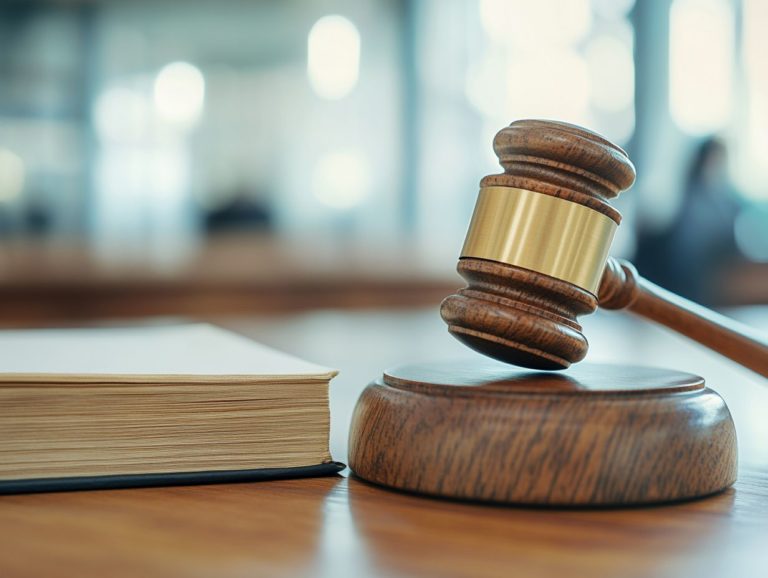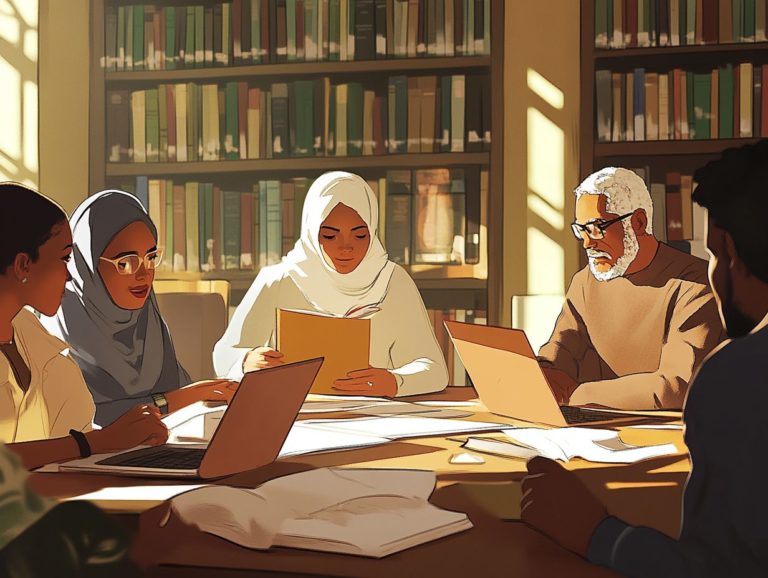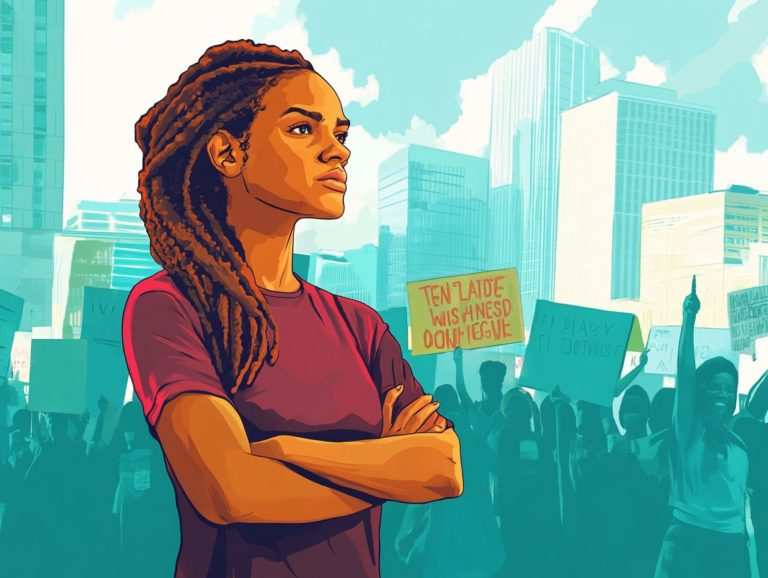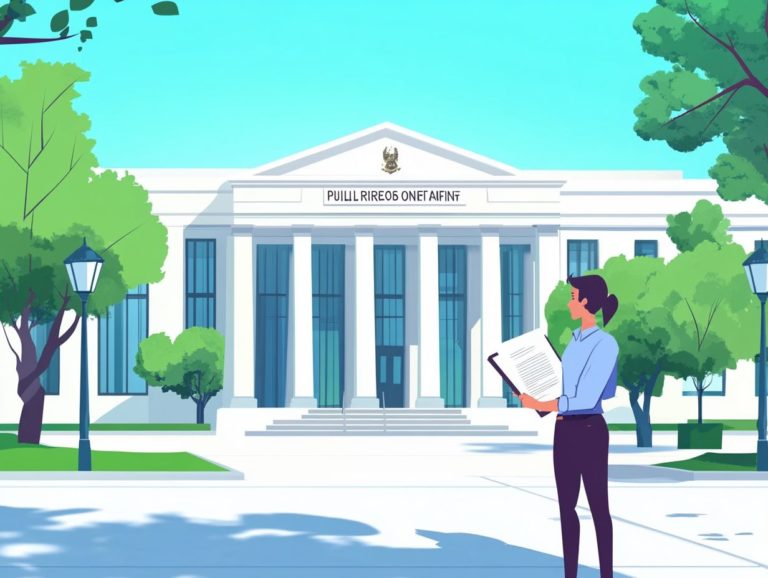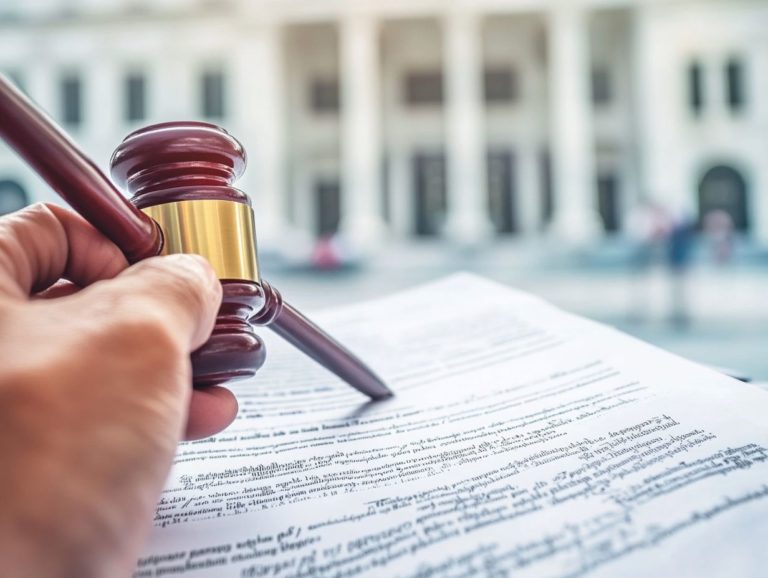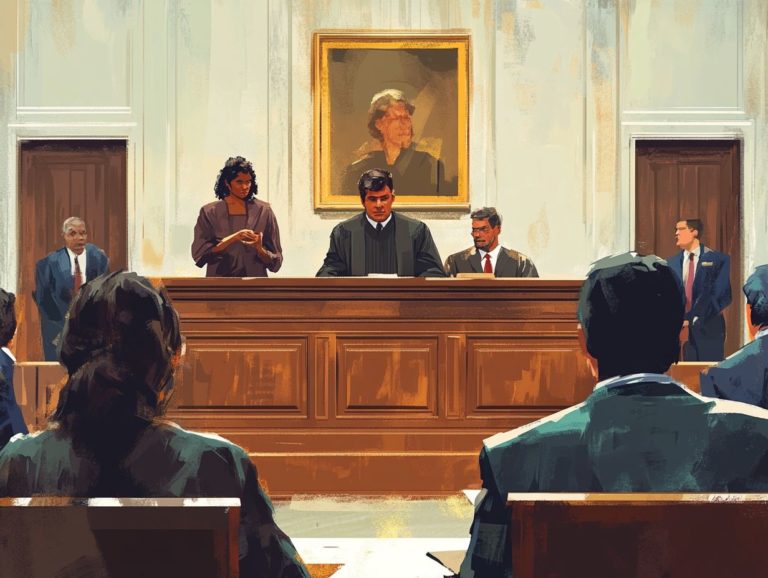Understanding Witness Rights in Criminal Cases
Witnesses hold a pivotal position within the justice system, yet many remain unaware of the rights and protections afforded to them.
This article delves into the essential rights of witnesses, highlighting the importance of being informed about the legal process, measures for personal safety, and the confidentiality surrounding their testimony.
It also addresses the financial compensation available for witnesses and the specific circumstances under which one may refuse to testify. Gaining a clear understanding of these rights is crucial for anyone involved in legal proceedings, ensuring that their voices are heard and safeguarded.
Contents
- Key Takeaways:
- The Right to be Informed
- The Right to Protection
- The Right to Privacy
- The Right to Compensation
- The Right to Refuse to Testify
- Frequently Asked Questions
- What are witness rights in criminal cases?
- Who is considered a witness in a criminal case?
- What are some common rights of witnesses in criminal cases?
- Can a witness refuse to testify in a criminal case?
- What happens if a witness does not want to testify in a criminal case?
- How can I ensure my witness rights are protected in a criminal case?
Key Takeaways:
- Witnesses have the right to be informed about their role in a criminal case, including their responsibilities and potential risks.
- Witness protection measures, such as anonymous testimony and relocation, are in place to ensure the safety of witnesses.
- Witnesses have the right to privacy and confidentiality, including the option to testify anonymously in certain circumstances.
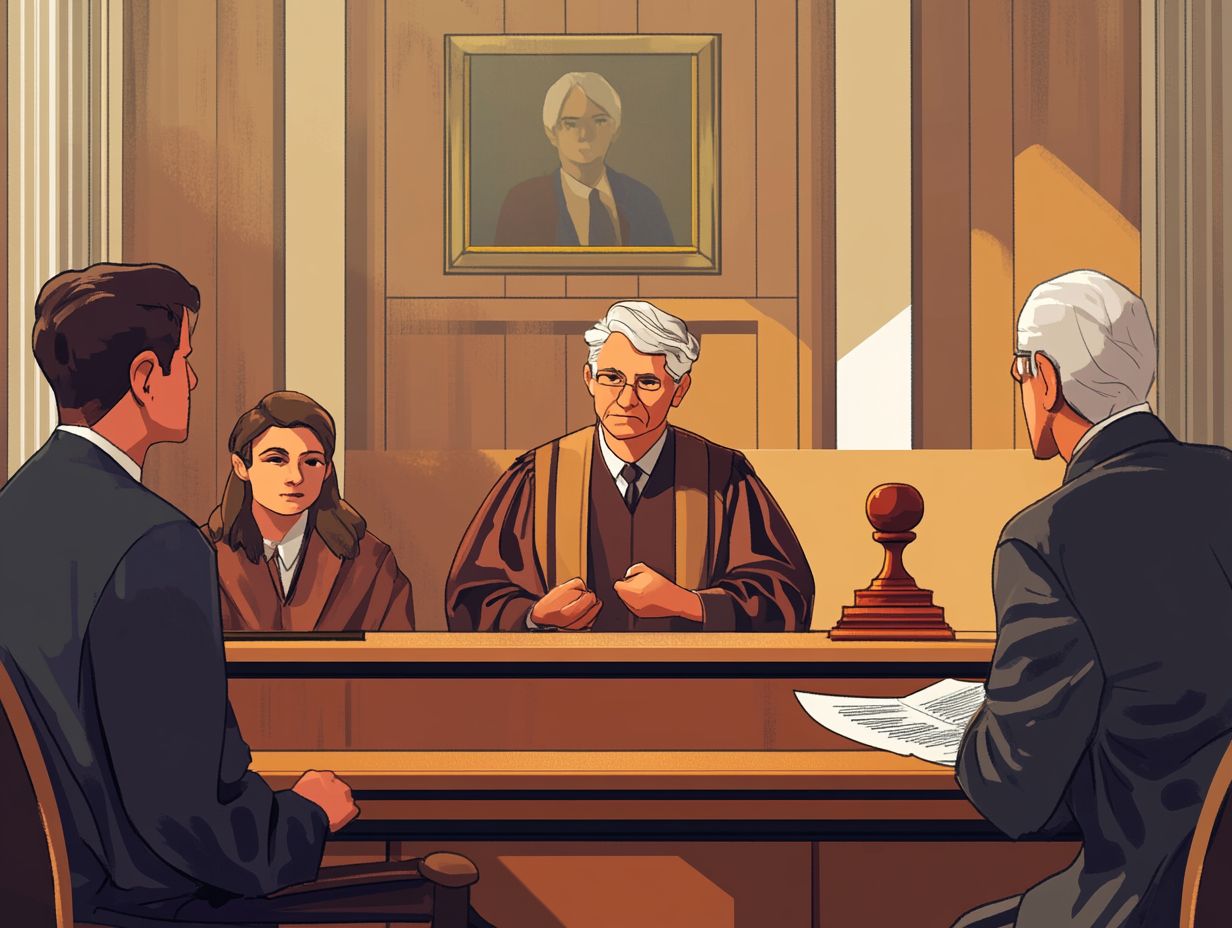
What are Witness Rights?
Witness rights serve a vital purpose in ensuring that you, as someone who steps forward to provide testimony in the criminal justice system, are treated with respect, dignity, and protection under the law.
These rights are firmly established in various legal documents, such as the Witness Charter and the Victims Code, which guarantee your entitlement to support, guidance, and necessary accommodations throughout the court process.
Understanding these rights is essential, not only for you as a witness but also for legal authorities and the integrity of the judicial system.
This framework is designed to empower you, helping you feel safe and confident as you participate, ultimately encouraging more individuals like you to come forward.
The Witness Charter explicitly outlines key entitlements, including your right to be informed about the progress of your case and to receive protection from threats.
The Victim-Witness Coordinator plays a crucial role in facilitating this process. They offer tailored support and act as a bridge between you and the court. For vulnerable witnesses such as minors or those with disabilities special protections are often put in place, ensuring that your testimonies are recorded in secure and accommodating environments.
This holistic approach not only upholds your rights as a witness but also reinforces justice, allowing for a more comprehensive pursuit of truth.
The Right to be Informed
The right to be informed is a cornerstone of witness rights, ensuring that you are updated about the status of your case, court proceedings, and any changes that could impact your role during the trial.
This essential right ensures you are not left in the dark, allowing you to navigate the legal landscape with confidence and clarity.
Understanding Your Role as a Witness
Understanding your role as a witness is vital within the criminal justice system; it involves providing accurate testimony and engaging thoughtfully in the examination of evidence presented during court proceedings.
As a witness, you carry the significant responsibility of delivering truthful statements that can influence the outcome of a trial. It’s essential to recognize that your participation not only helps establish the facts but also upholds the integrity of the judicial process.
Having legal representation can be invaluable, as it guides you through the complexities of court procedures. During the trial, you can expect to be examined and cross-examined, where your ability to communicate clearly and maintain composure becomes crucial.
By understanding your rights and the potential impact of your testimony, you empower yourself to contribute positively to the resolution of the legal matter at hand.
The Right to Protection
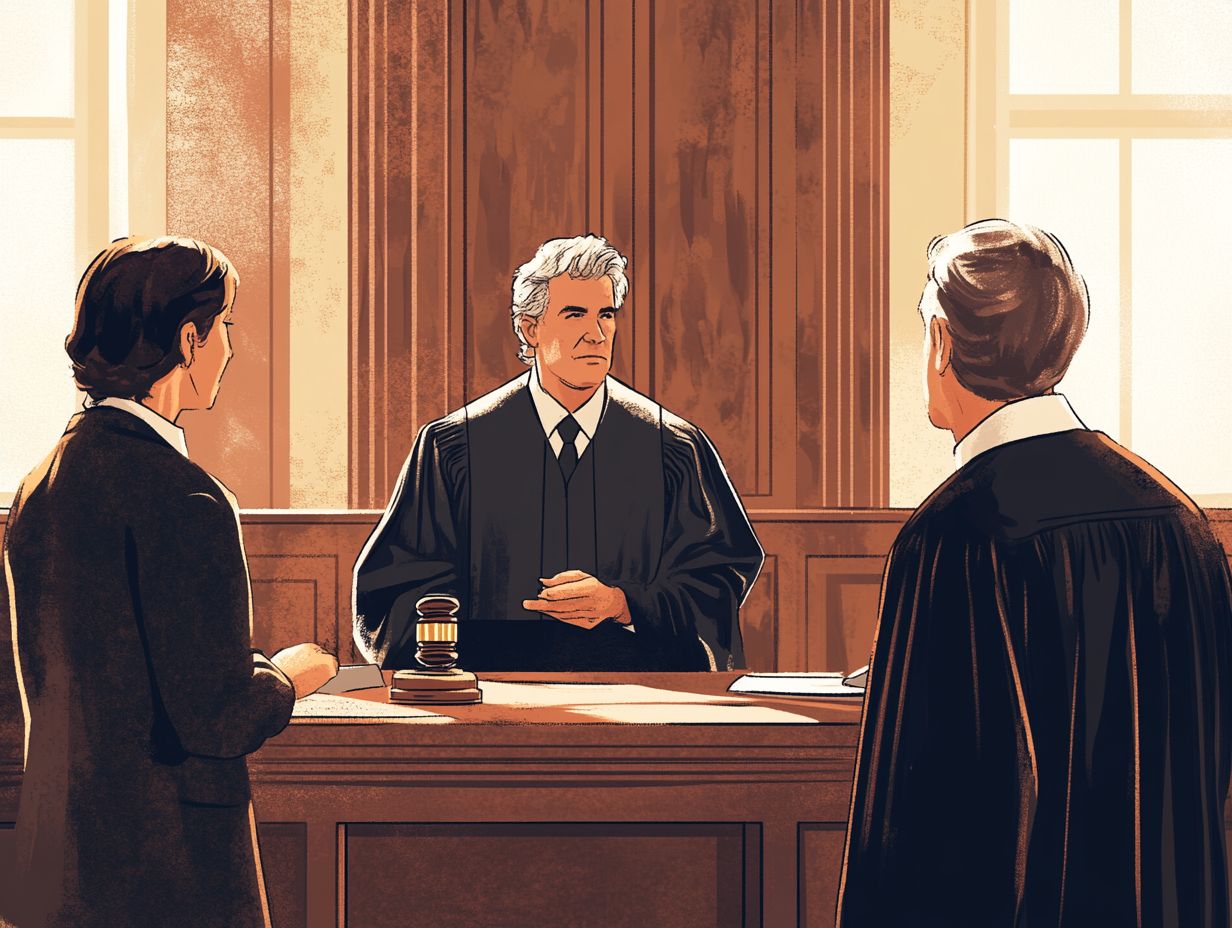
The right to protection stands as a fundamental pillar of witness rights, meticulously crafted to safeguard the safety and security of witnesses.
This is especially crucial for those classified as vulnerable, who may require special measures throughout the judicial process.
Measures to Ensure Witness Safety
Measures to ensure witness safety are absolutely essential in the criminal justice system. Law enforcement is crucial for implementing special measures that protect witnesses from potential harassment and intimidation during court proceedings.
To enhance this protection, you can explore various strategies. Secure transport arrangements are key, prioritizing the safety of vulnerable witnesses as they travel to and from court.
Privacy arrangements, such as separate entrances or waiting areas, are also vital in minimizing exposure to potential threats. If you encounter language barriers, including interpreters ensures that you fully understand the proceedings without feeling isolated or intimidated.
By tailoring these measures to meet the unique needs of each witness, the criminal justice system can create an environment where individuals feel safe and empowered to share their testimonies without fear.
The Right to Privacy
The right to privacy stands as a fundamental pillar of witness rights, offering crucial protections for individuals regarding their personal information. It ensures that witnesses are shielded from unnecessary exposure during public court proceedings, preserving their dignity and security throughout the legal process.
Confidentiality and Anonymity
Confidentiality and anonymity are crucial in safeguarding the interests of witnesses, ensuring that their identities and testimonies remain protected from public disclosure throughout the judicial process. Legal tools like protective orders and witness protection programs can help maintain this confidentiality. These systems create conditions under which a witness s identity can be kept secret, often hinging on the potential threats to their safety if disclosed.
Your legal representatives are critical advocates in this arena; they help you navigate the complexities of the law while vigorously defending your right to anonymity. By highlighting the necessity for protection, they enable you to contribute to the justice system without the looming fear of retribution, ultimately upholding the integrity of the judicial process.
The Right to Compensation
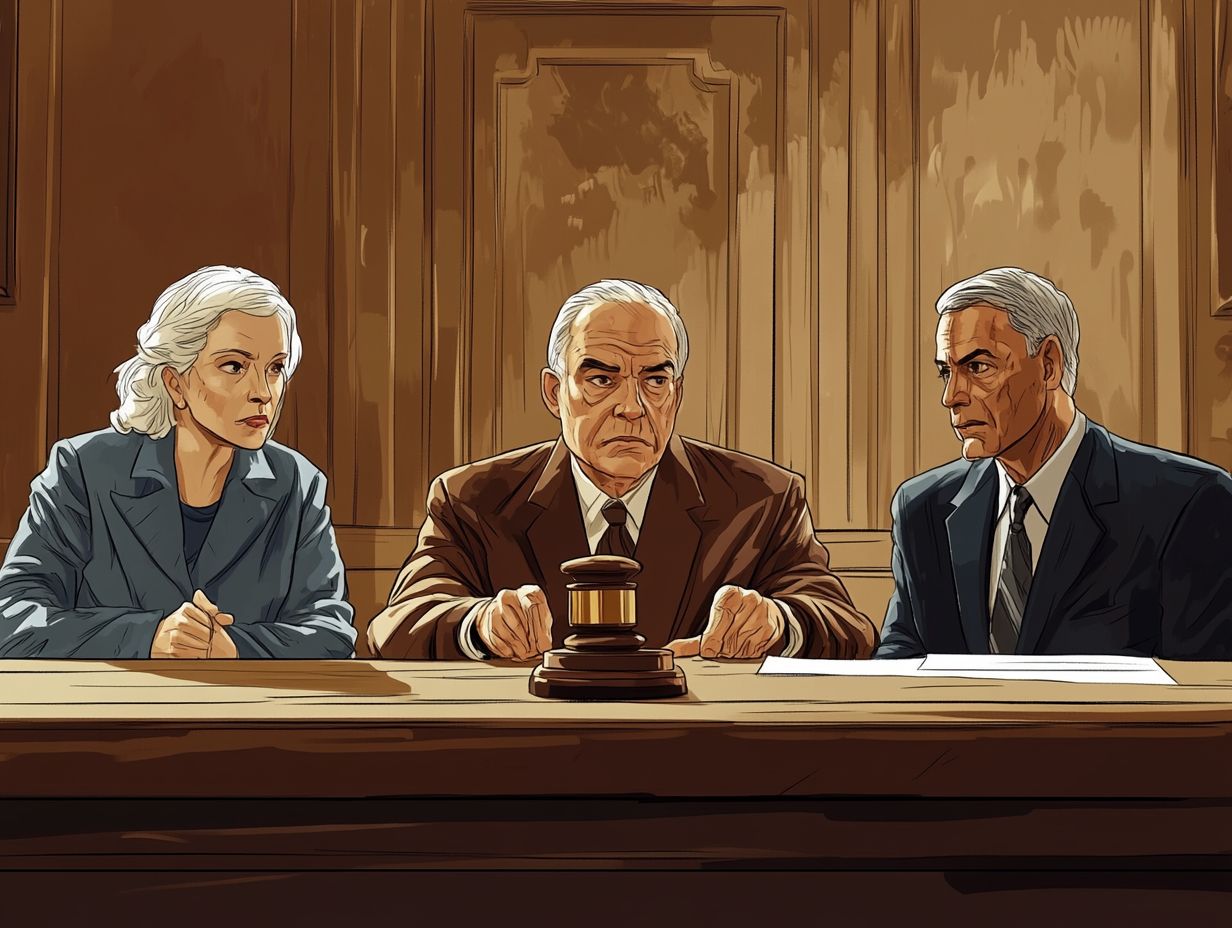
The right to compensation is an essential legal entitlement that gives you the power to pursue financial reimbursement for any expenses you’ve incurred due to your involvement in the judicial process, as stipulated in the Victims Code.
Financial Support for Witnesses
Financial support for witnesses plays a vital role in the criminal justice system, providing you with essential resources to manage expenses while you fulfill your important role in the judicial process. Many government programs are specifically designed to assist those facing economic hardships due to their involvement in court cases.
Furthermore, numerous non-profit organizations offer financial aid, counseling, and legal guidance to help lighten your load. This assistance not only upholds your rights as a witness, allowing you to testify without the concern of financial repercussions, but it also enhances the integrity of the judicial system by encouraging active and informed participation in trials.
With such support, you can concentrate on your vital role in the courtroom, ultimately contributing to fairer outcomes in the justice system.
The Right to Refuse to Testify
The right to refuse to testify is a vital legal privilege that gives you the power to opt out of court proceedings under specific conditions. This entitlement underscores the delicate balance between the authority of the judiciary and the rights of individuals, ensuring that personal freedoms are respected within the legal framework.
Circumstances Where You Can Refuse to Testify
Under certain circumstances, you have the right to refuse to testify, especially if doing so might violate your legal obligations or expose you to self-incrimination. This is protected by the Fifth Amendment.
Specific state laws may offer additional protections, such as spousal privilege or attorney-client confidentiality, allowing you to safeguard sensitive relationships. These provisions can impact the judicial process. They may limit available evidence and influence case outcomes.
It s essential to understand your rights in these situations. Getting legal help can change everything. It gives you the confidence to make the best decisions about testifying.
Frequently Asked Questions
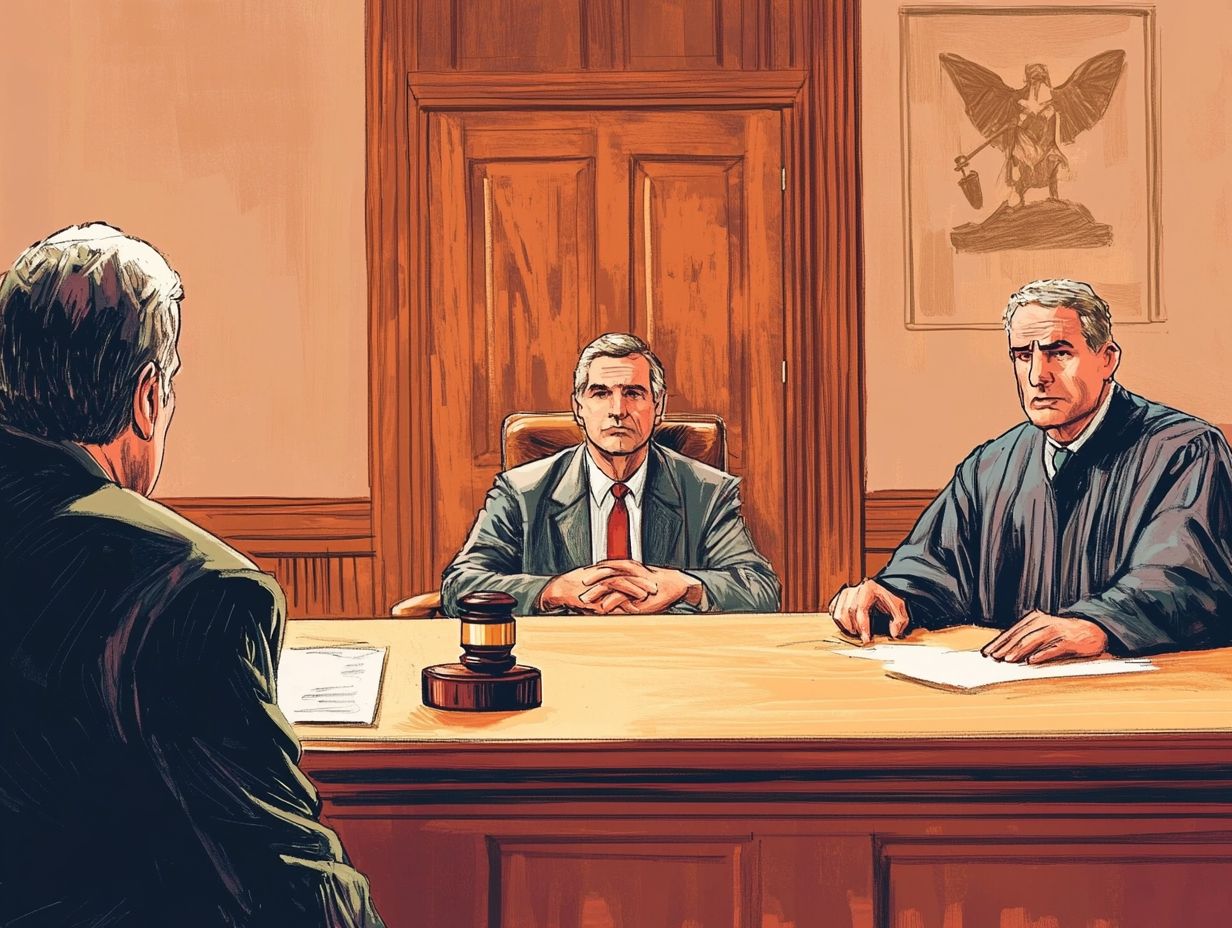
What are witness rights in criminal cases?
Witness rights in criminal cases refer to the legal protections and privileges granted to individuals who are called to testify in a criminal trial. These rights are designed to ensure that witnesses are treated fairly, that their testimony is accurate and truthful, and that they are not subject to any form of harassment or intimidation.
Who is considered a witness in a criminal case?
A witness in a criminal case is a person who has relevant information or evidence about a crime or incident that is being investigated or prosecuted. This can include victims, bystanders, experts, and anyone else with relevant information.
What are some common rights of witnesses in criminal cases?
- The right to be notified of court proceedings.
- The right to have a lawyer present during questioning.
- The right to be treated with respect and dignity.
- The right to refuse to answer certain questions if they could incriminate themselves.
Can a witness refuse to testify in a criminal case?
In most cases, witnesses cannot refuse to testify if they are subpoenaed or summoned to appear in court. However, there are exceptions, such as spousal privilege or the right to remain silent under the Fifth Amendment of the U.S. Constitution.
What happens if a witness does not want to testify in a criminal case?
If a witness does not want to testify, they should consult with a lawyer to understand their rights and options. Depending on the circumstances, they may be able to claim a legal privilege or right to remain silent. However, if they are subpoenaed, they may face consequences for failing to appear in court.
How can I ensure my witness rights are protected in a criminal case?
If you are called to testify as a witness in a criminal case, it is important to fully understand your rights and protections. Consulting with a lawyer can help you learn more about your specific situation and how to assert your rights. It is also crucial to be truthful and accurate in your testimony to avoid potential legal consequences.
Don t wait! Know your rights today!

